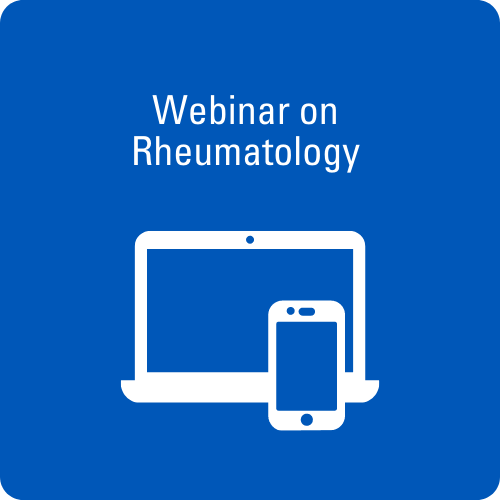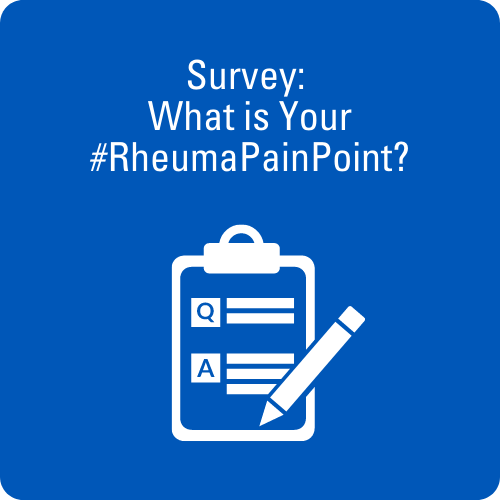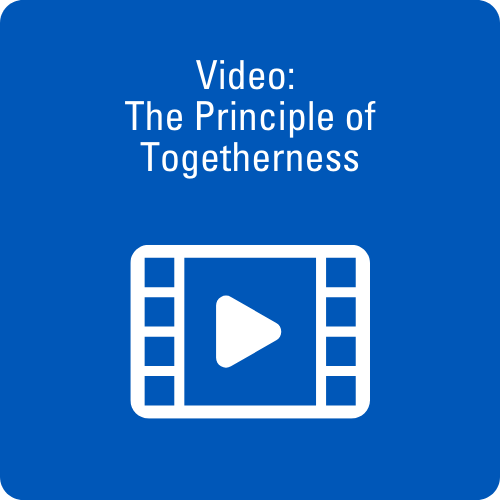What is World Arthritis Day?
World Arthritis Day (WAD) is a global awareness day aimed towards increasing knowledge of the existence and impact of rheumatic and musculoskeletal diseases (RMDs) among all audiences. As the alliance of associations representing the people with arthritis/rheumatism, health professionals in rheumatology (HPR), and scientific societies of rheumatology in Europe, EULAR considers WAD an integral part of our efforts to promote scientific research, medical education, and awareness of RMDs.
RMDs are among the most prevalent, disabling, burdensome, and costly non-communicable diseases and this hidden crisis impacts the lives of over 120 million people of all ages in Europe alone. While healthcare has become a very visible topic of international discussion due to the COVID-19 pandemic, RMDs remain largely unknown and unaddressed throughout Europe and beyond, despite their seriousness and prevalence.
To help address this, EULAR's WAD 2022 campaign is focused on understanding the pain points these diverse audiences have in the field of rheumatology, such as a shrinking medical workforce, long waiting times for appointments, or lacking understanding of RMDs among governmental decision-makers. Better understanding these 'pain points' will allow us to better address them both at a national and international level, which is EULAR's key goal.
What is Your #RheumaPainPoint?
There has never been a more opportune time to push for improvement in rheumatology than now, when Europe is keenly aware that our healthcare sector has significant gaps. So why is this not already happening in rheumatology, when it is such an important field?
EULAR is committed to working with healthcare professionals, patients, and policymakers to gain rheumatology not just recognition, but also action that is fitting for a field that affects so many among us in a lifelong way. We want to understand why progress in improving rheumatological care is slow and where we can use our resources to make a change.
In order for us to speak with a stronger, more unified voice, EULAR turned to you to tell us what your experience with rheumatology has been - be it in your country or internationally, as a patient or as a medical professional, what is your #RheumaPainPoint? Our survey helped us better understand your needs as members of the EULAR community, so that we can help drive the improvement of the state of rheumatology in Europe.
See survey results infographic here.
How can we strengthen rheumatology in Europe and beyond?
To improve rheumatological care across diverse countries, it is essential that we treat the root cause of the problem: that rheumatology is invisible. Underrepresentation at universities means few medical students choosing this specialisation, while non-specialised audiences do not understand RMD symptoms and thus remain unaware and uninformed about how RMDs can affect them or their loved ones in a lifelong way.
EULAR's World Arthritis Day webinar, titled ‘Invisible Rheumatology - Why are we facing shortages and delays and how can we change this?’, aims to look at the current situation in rheumatological care and open the discussion on how we can position rheumatology as an important, interesting, and essential field of medicine to key decision-makers. The webinar is open to audiences from all three pillars of EULAR in order to gather ideas and share experiences
EULAR WAD 2022 Webinar: ‘Invisible Rheumatology - Why are we facing shortages and delays and how can we change this?’
12 October, 19:00-20:15 CEST / 18:00-19:15 BST
Learn more / Watch the recording
The Principle of Togetherness - A Best Practice Example
 Countries in Europe and beyond face stark disparities in patient access to rheumatologists and levels of patient-centred care. Patients often hesitate to consider their symptoms to be part of a chronic condition, their General practitioners (GPs) may have difficulty addressing their concerns, and they face large delays in getting an appointment with a specialist. On the other side of the problem, few medical students choose rheumatology as their specialisation and healthcare professionals such as nurses, physiotherapists, and psychologists may not always have the specialist knowledge needed to help to the best of their abilities.
Countries in Europe and beyond face stark disparities in patient access to rheumatologists and levels of patient-centred care. Patients often hesitate to consider their symptoms to be part of a chronic condition, their General practitioners (GPs) may have difficulty addressing their concerns, and they face large delays in getting an appointment with a specialist. On the other side of the problem, few medical students choose rheumatology as their specialisation and healthcare professionals such as nurses, physiotherapists, and psychologists may not always have the specialist knowledge needed to help to the best of their abilities.
EULAR created the following video to provide advice on how to improve rheumatological care across various countries. Medical professionals and a patient representative from Denmark talk about how their collaboration is based on the principle of togetherness, ensuring all three pillars (the rheumatologists, the healthcare professionals, and the patients) work together in order to provide the best possible therapy option.
Do you have an amazing example of patient-centric care that you would like to share with us? Or, alternatively, an example of how things should not be done? Please share them with us on social media, using #RheumaPainPoint or contact us at publicaffairs@eular.org.
For more information about EULAR's activities and communities, subscribe to the EULAR Monthly Newsletter.



